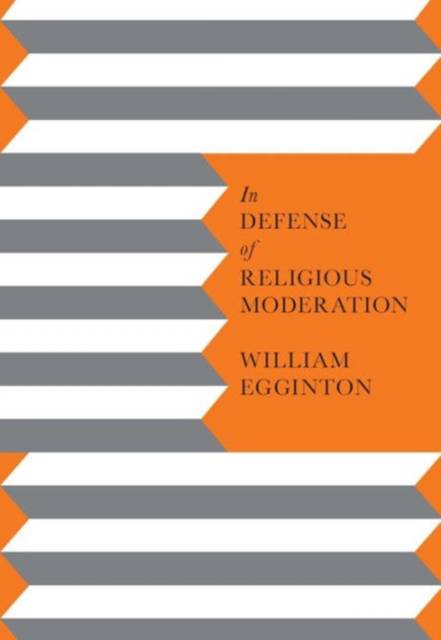
- Afhalen na 1 uur in een winkel met voorraad
- Gratis thuislevering in België vanaf € 30
- Ruim aanbod met 7 miljoen producten
- Afhalen na 1 uur in een winkel met voorraad
- Gratis thuislevering in België vanaf € 30
- Ruim aanbod met 7 miljoen producten
Zoeken
Omschrijving
In his latest book, William Egginton laments the current debate over religion in America, in which religious fundamentalists have set the tone of political discourse--no one can get elected without advertising a personal relation to God, for example--and prominent atheists treat religious belief as the root of all evil. Neither of these positions, Egginton argues, adequately represents the attitudes of a majority of Americans who, while identifying as Christians, Jews, and Muslims, do not find fault with those who support different faiths and philosophies. In fact, Egginton goes so far as to question whether fundamentalists and atheists truly oppose each other, united as they are in their commitment to a "code of codes." In his view, being a religious fundamentalist does not require adhering to a particular religious creed. Fundamentalists--and stringent atheists--unconsciously believe that the methods we use to understand the world are all versions of an underlying master code. This code of codes represents an ultimate truth, explaining everything. Surprisingly, perhaps the most effective weapon against such thinking is religious moderation, a way of believing that questions the very possibility of a code of codes as the source of all human knowledge. The moderately religious, with their inherent skepticism toward a master code, are best suited to protect science, politics, and other diverse strains of knowledge from fundamentalist attack, and to promote a worldview based on the compatibility between religious faith and scientific method.
Specificaties
Betrokkenen
- Auteur(s):
- Uitgeverij:
Inhoud
- Aantal bladzijden:
- 176
- Taal:
- Engels
Eigenschappen
- Productcode (EAN):
- 9780231148795
- Verschijningsdatum:
- 28/06/2016
- Uitvoering:
- Paperback
- Formaat:
- Trade paperback (VS)
- Afmetingen:
- 132 mm x 201 mm
- Gewicht:
- 249 g

Alleen bij Standaard Boekhandel
+ 91 punten op je klantenkaart van Standaard Boekhandel
Beoordelingen
We publiceren alleen reviews die voldoen aan de voorwaarden voor reviews. Bekijk onze voorwaarden voor reviews.











